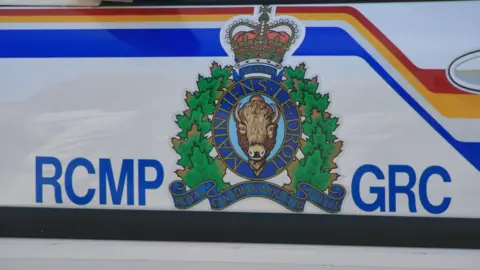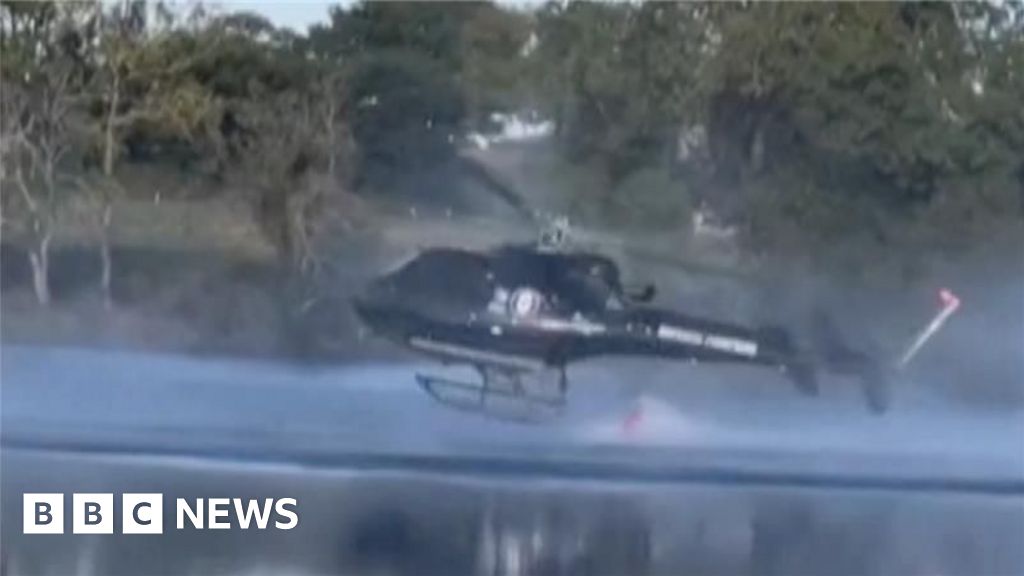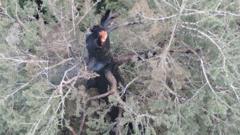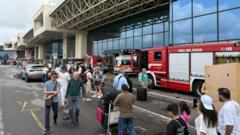In a dramatic turn of events, the government of Manitoba has declared a state of emergency as it grapples with more than 100 wildfires raging across the province. The alarming pace of destruction has seen approximately 2.5 million acres already scorched in 2025, setting the province on track for its most devastating wildfire season since 1994, according to officials.
As fires continue to rage, with at least a dozen classified as out of control on Friday, many communities have been thrust into crisis mode. Nine areas, including Snow Lake, south of the capital Winnipeg, and the Garden Hill First Nation, have issued mandatory evacuation orders in recent days.
This year's increased temperatures have aggravated Manitoba's wildfire season, typically spanning from March to October. The vast majority of these wildfires are ignited by lightning strikes, compounded by severe weather warnings including thunderstorms issued for regions like Winnipeg.
"As a province, we recognize the urgent need for emergency shelters to accommodate the influx of residents fleeing their homes," said Premier Wab Kinew during a Thursday briefing, acknowledging the significant challenges posed by the fires. In the recent evacuation efforts, over 4,000 individuals from the Garden Hill reservation were relocated to facilities such as Winnipeg's Billy Mosienko Arena and RBC Convention Center, with federal air support aiding in the transport of evacuees.
Kinew also noted the assistance of American firefighters, highlighting a diplomatic dilemma. He criticized U.S. Congressional members from Minnesota and Wisconsin for politicizing the wildfires. After some representatives urged the Canadian government to address the smoke and ash drifting into their states, Kinew expressed concerns about the insensitivity of these remarks amid a crisis that has already resulted in loss of life and extensive evacuations.
This declaration follows May's state of emergency, where wildfires resulted in two fatalities and forced about 30,000 people to evacuate across Manitoba and neighboring Saskatchewan. As the situation evolves, the province continues to confront the escalating wildfire threat with urgency and resolve.
As fires continue to rage, with at least a dozen classified as out of control on Friday, many communities have been thrust into crisis mode. Nine areas, including Snow Lake, south of the capital Winnipeg, and the Garden Hill First Nation, have issued mandatory evacuation orders in recent days.
This year's increased temperatures have aggravated Manitoba's wildfire season, typically spanning from March to October. The vast majority of these wildfires are ignited by lightning strikes, compounded by severe weather warnings including thunderstorms issued for regions like Winnipeg.
"As a province, we recognize the urgent need for emergency shelters to accommodate the influx of residents fleeing their homes," said Premier Wab Kinew during a Thursday briefing, acknowledging the significant challenges posed by the fires. In the recent evacuation efforts, over 4,000 individuals from the Garden Hill reservation were relocated to facilities such as Winnipeg's Billy Mosienko Arena and RBC Convention Center, with federal air support aiding in the transport of evacuees.
Kinew also noted the assistance of American firefighters, highlighting a diplomatic dilemma. He criticized U.S. Congressional members from Minnesota and Wisconsin for politicizing the wildfires. After some representatives urged the Canadian government to address the smoke and ash drifting into their states, Kinew expressed concerns about the insensitivity of these remarks amid a crisis that has already resulted in loss of life and extensive evacuations.
This declaration follows May's state of emergency, where wildfires resulted in two fatalities and forced about 30,000 people to evacuate across Manitoba and neighboring Saskatchewan. As the situation evolves, the province continues to confront the escalating wildfire threat with urgency and resolve.





















